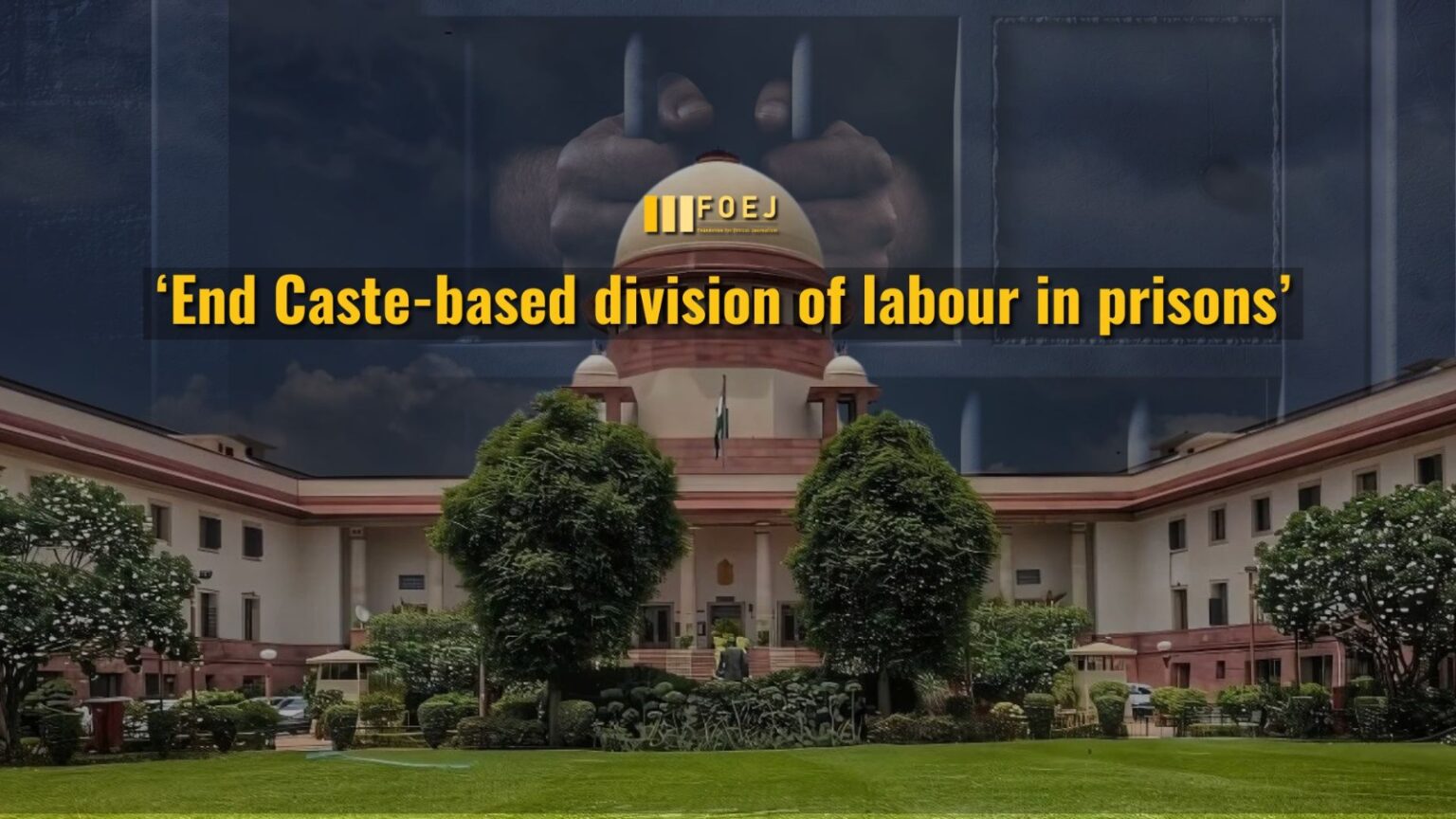The Supreme Court on Thursday ordered all states and Union Territories to end caste based discrimination in the division of labor in prisons. The court also struck down the provisions of state’s prison manuals that were associated with the jobs in prison should be based on caste. It held that assigning sanitation works to the marginalized castes and cooking to higher caste prisoners was direct caste discrimination and a violation of Article 15.
A bench of Chief Justice of India DY Chandrachud and Justices JB Pardiwala, and Manoj Misra, while passing the judgment in a Public Interest Litigation (PIL) filed by journalist Sukanya Shanta based on her article published in The Wire, asked the authorities to remove caste column in prison registers. It stated that assigning sanitations works to marginalized caste
The court challenged the provisions of the Uttar Pradesh Prison Manual, which stipulate that individuals serving simple imprisonment should not be assigned menial work unless it has traditionally been performed by their caste.
“We hold that no group is born as a scavenger class or to do or not do menial jobs or as classes who can cook and who cannot cook…these are aspects of untouchability which cannot be permitted,” the court observed in the judgment, and the live law reported.
“Segregating prisoners on the basis of caste will reinforce caste discrimination… segregation will not facilitate rehabilitation… Not providing dignity to prisoners is a relic of the colonial system. Even prisoners are entitled to the right to dignity. They are to be treated humanely and without cruelty. Prison system must be considerate to the physical and mental health of the prisoners, ” CJI DY Chandrachud said.
The court instructed all states and Union Territories to update their prison manuals to eliminate caste-based work allocation and called on the Union government to amend its Model Prison Rules accordingly.
The court further directed that references to habitual offenders in prison manuals should align with legislative definitions and must not include any mention of their caste or tribe.
Ways of Caste Discrimination
Senior Advocate S. Muralidhar and Advocate Disha Wadekar, representing Shantha, argued that there are three forms of discrimination in prisons. They stated that inmates face discrimination through the division of manual labor, segregation of barracks along caste lines, and existing provisions in state prison manuals that target prisoners based on their caste. Continuing the arguments, the court directed that the caste columns in prison registers must be deleted.
Before stating the judgment, CJI Chandrachud said that the petition was “beautifully researched” and congratulated the lawyers for arguing the matter effectively.









